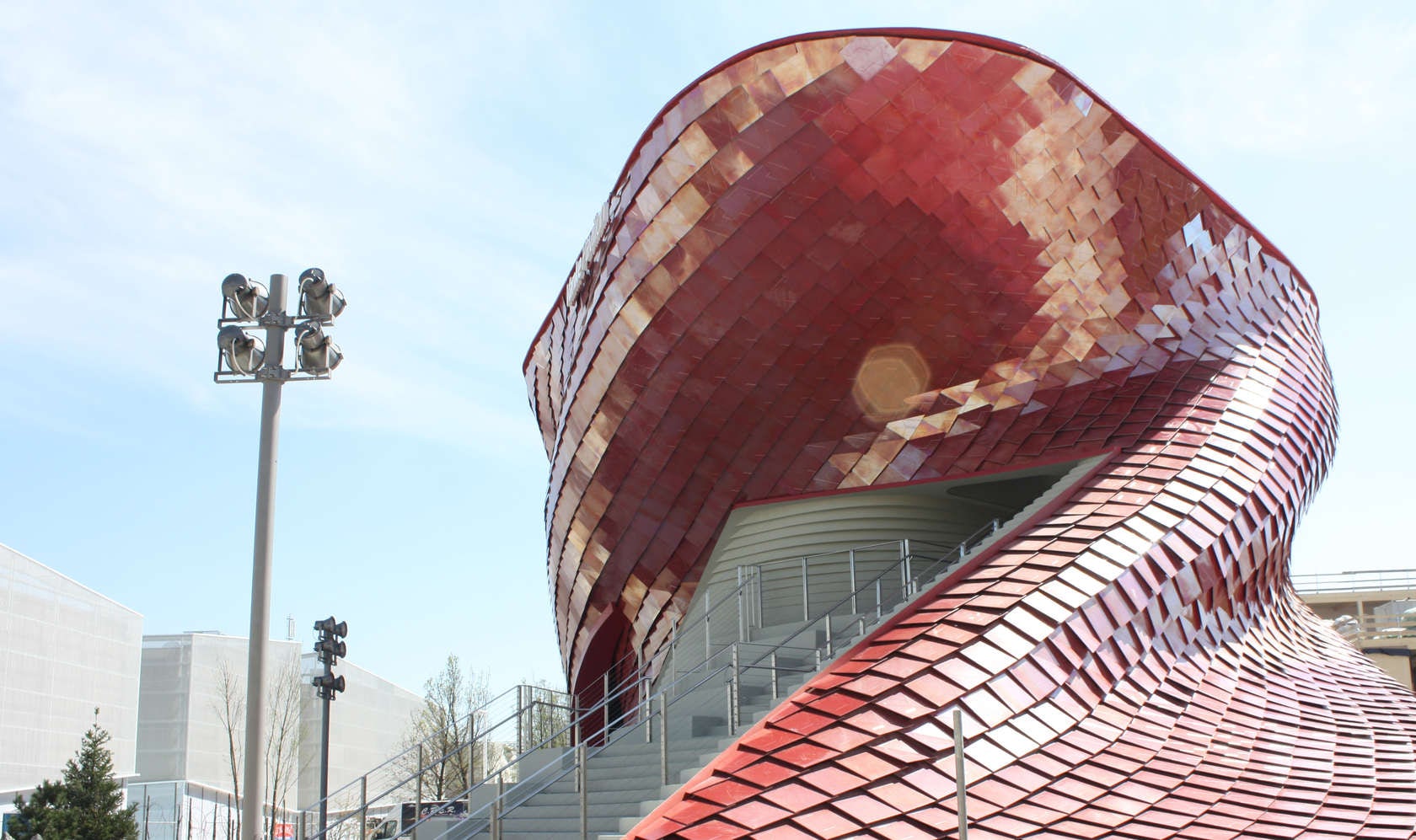Over the past couple of decades, Daniel Libeskind has established himself as the undisputed king of metaphorical architecture. Cities around the globe have received all manner of allegorical structures, from the crystalline formations of the ROM in Toronto to a dramatic shard of shrapnel in Dresden, from shattered fragments of earth itself in Manchester to the claustrophobic corridors in Copenhagen.
Now, Milan will host the latest creation of the connoisseur of sculptural symbolism: the Polish-American architect is set to unveil his much anticipated pavilion for Vanke China at the 2015 Universal Exposition on May 1st, along with four sculptures entitled “The Wings” that frame the Piazza Italia.

The Vanke Pavilion will undoubtedly be one of the most distinctive landmarks within the Exposition site. Its twisting, sinuous form is clad in over 4,000 blood-red Casalgrande ceramic tiles which glisten in the sun, evoking images of a coiled snake or, more pertinently, a sleeping dragon — the Chinese metaphor for farming and sustenance, appropriate given the overriding theme of the Expo, “Feeding the Planet, Energy for Life.”

A sweeping concrete staircase marks the entrance to the 800-square-meter pavilion, providing a calm counterbalance in both color and texture to the crimson scales of the main enclosure. Once inside, visitors will be greeted with a vast installation of 200 screens mounted upon bamboo scaffolding, which will communicate the complex cultural nuances of Chinese food and agriculture through a visceral multimedia experience.

Libeskind’s second project for Milan is equally evocative in nature: “The Wings” is a quartet of metallic sculptures designed to form a physical manifestation of the Expo’s themes and the symbiosis of manmade and natural elements. In the words of the architects, each sculpture is “composed of three sinuous, intertwined blades that spiral up and outward like the branches of a tree.”

Although they are static structures, the sculptures will be far from inanimate: equipped with 10,000 LED lights, they will form shimmering installations by night, evoking “the spectacular acrobatic masses of starlings taking to flight.” The 32-foot-high steel beacons are also fitted with speakers that will emit an abstract mixture of sounds from both rural and urban environments, acting as “the bridge between nature and technology.”
The sculptures are set to frame the central square for the Exposition from May 1st until October 31st this year, after which they will be exhibited in other locations around the country.




